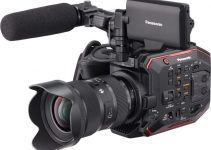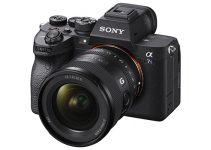DJI has introduced a new software-defined radio (SDR) transmission technology that promises to provide wireless transmission of high-definition video at high bitrates at an affordable price.
The DJI SDR Transmission system is designed to offer a wireless standard for smaller crews, similar to consumer-grade WiFi, but with better performance.
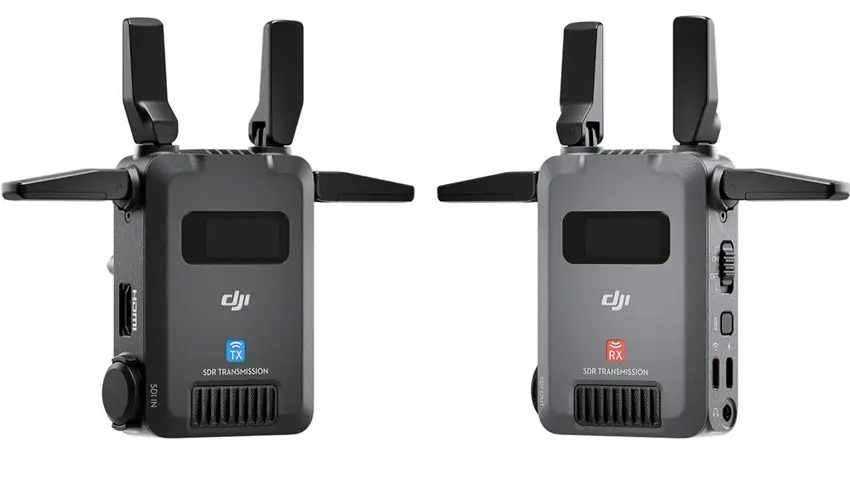
Image Credit – DJI Global
“Since the beginning, we intended our DJI PRO line to be a comprehensive and reliable ecosystem of drones, cameras, and creator tools for both professional filmmakers in the industry and content creators to aspiring storytellers,” says Paul Pan, Senior Product Line Manager at DJI.
“Our new DJI SDR Transmission delivers the same film and television-level image transmission quality but at a more accessible price point for more upcoming filmmakers.”
With a decade of development, the Software Defined Radio (SDR) architecture uses software algorithms to provide high bitrates and better image quality than conventional WiFi connections.
The system offers an extended range with a transmission distance of over three kilometers (10,000 feet) from the receiver.
To address the congestion in conventional WiFi bands, DJI has created a proprietary system that operates just outside the popular WiFi bands.
It operates at 2.4 GHz, 5.8 GHz, and Dynamic Frequency Selection (DFS), with frequency hopping to maintain a solid video transmission connection.
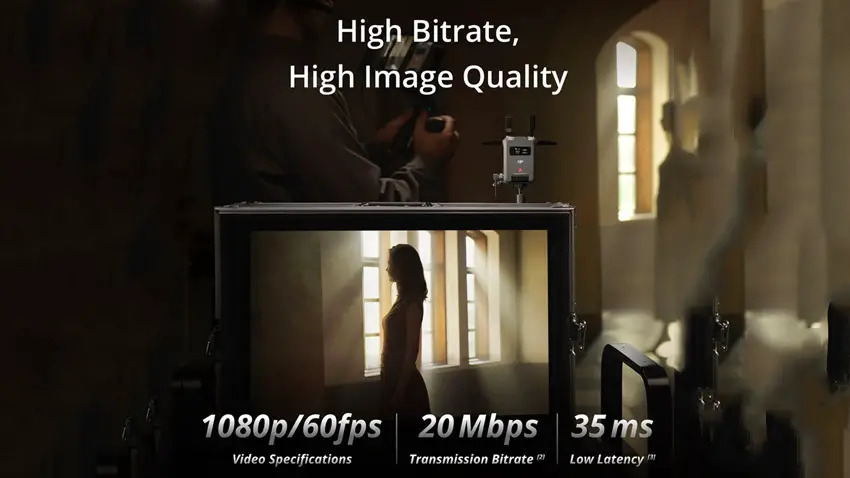
Image Credit – DJI Global
DFS is usually reserved for radar applications, such as military radar, satellite communication, and weather radar, and provides expanded use of WiFi bands with minimal interference or latency (averaging 35 ms) and data transmission bitrates of up to 20 Mbps of 1080p 60fps original camera files.
However, DFS requirements vary from country to country, so users are advised to check the operating requirements in their shooting area.

Image Credit – DJI Global
The SDR Transmission System supports an unlimited number of monitor connections in broadcast mode and allows switching between camera connections.
It also offers traditional HDMI and SDI out connections, including Metadata transmission, as well as USB-C connections for adding tablets, mobile phones, and other platforms. It also features a “voice call” channel for real-time one-on-one communications, PTP control over cameras, and supports CEC control for Sony cameras using Mirror Control mode.
Additionally, when connected to a gimbal, it supports Force Mobile, virtual joystick, and gimbal recentering functions via the app.
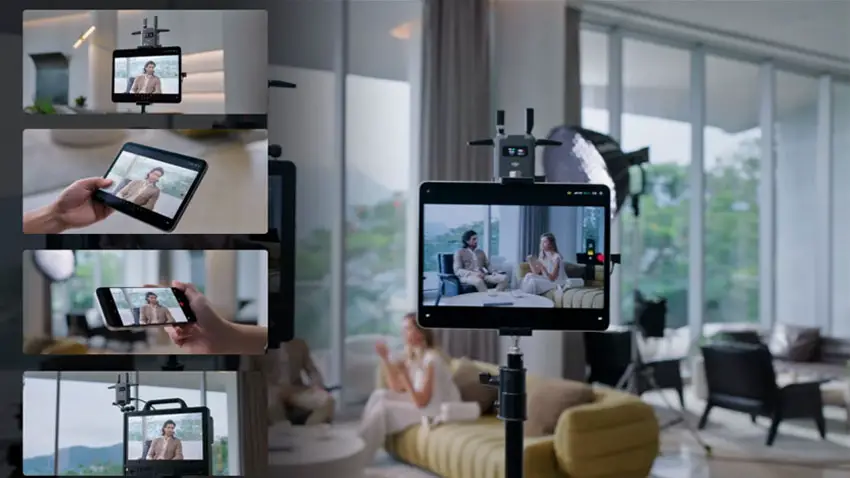
Image Credit – DJI Global
The voice call feature allows real-time voice communication between the receiver and transmitter, enabling seamless conversations between the cinematographer and the director or client.
The Transmission SDR system also offers phantom power connections when added to the Ronin handheld stabilizer ecosystem, eliminating the need for additional power solutions.
It can also be powered directly by DJI RS 4 Pro, DJI RS 4, or DJI RS 3 Pro when mounted and used together. Other power options include a standard PD protocol charger with a USB-C power input and support industry-standard Sony NP-F rechargeable batteries.
The Transmission SDR System has a lightweight design, with a transmitter or receiver weighing just 145 g (5.1 oz) each. The antenna folds down, making it easy to carry and store.
Pricing and availability
The DJI Transmission SDR system is available now, at a retail price of $309 for the transmitter or receiver and $549 for the combination of the two. With a very affordable price, there is no reason not to add wireless video transmission to independent and low-budget content creation.
Find out more at DJI.com.
[source: DJI]
Order Links:
- DJI SDR Transmission Transmitter (B&H)
- DJI SDR Transmission Receiver (B&H)
- DJI SDR Transmission Combo (B&H)
Disclaimer: As an Amazon Associate partner and participant in B&H and Adorama Affiliate programmes, we earn a small comission from each purchase made through the affiliate links listed above at no additional cost to you.


